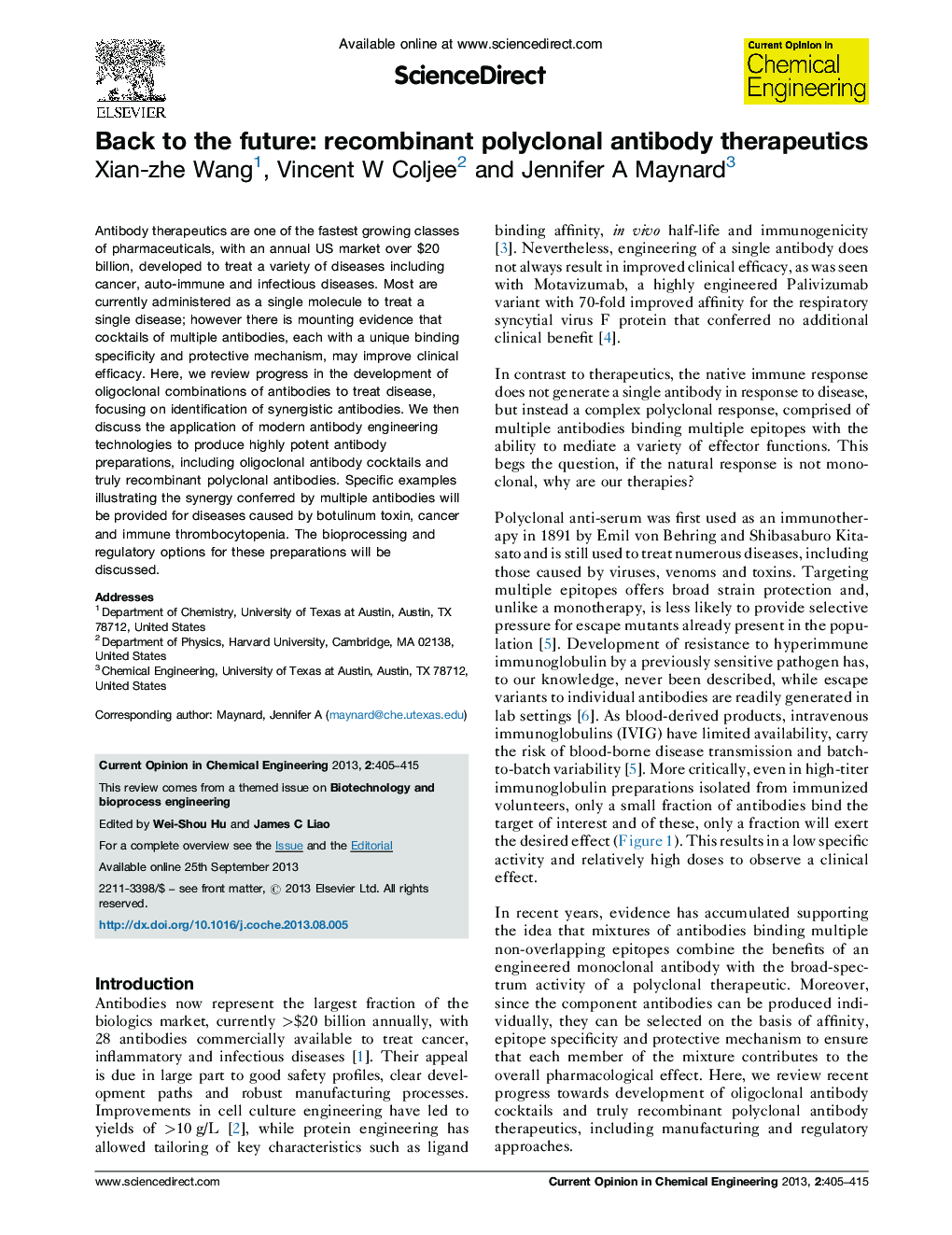| Article ID | Journal | Published Year | Pages | File Type |
|---|---|---|---|---|
| 174462 | Current Opinion in Chemical Engineering | 2013 | 11 Pages |
•Immune responses invoke antibodies binding many epitopes and employing many mechanisms.•Antibody cocktails are more potent, less immunogenic, and reduce escape variant risk.•Recombinant polyclonal antibody therapeutics combine up to 26 unique antibodies.•Immune repertoire characterization facilitates selection of synergistic antibodies.•Novel manufacturing and regulatory processes make recombinant polyclonals possible.
Antibody therapeutics are one of the fastest growing classes of pharmaceuticals, with an annual US market over $20 billion, developed to treat a variety of diseases including cancer, auto-immune and infectious diseases. Most are currently administered as a single molecule to treat a single disease; however there is mounting evidence that cocktails of multiple antibodies, each with a unique binding specificity and protective mechanism, may improve clinical efficacy. Here, we review progress in the development of oligoclonal combinations of antibodies to treat disease, focusing on identification of synergistic antibodies. We then discuss the application of modern antibody engineering technologies to produce highly potent antibody preparations, including oligoclonal antibody cocktails and truly recombinant polyclonal antibodies. Specific examples illustrating the synergy conferred by multiple antibodies will be provided for diseases caused by botulinum toxin, cancer and immune thrombocytopenia. The bioprocessing and regulatory options for these preparations will be discussed.
